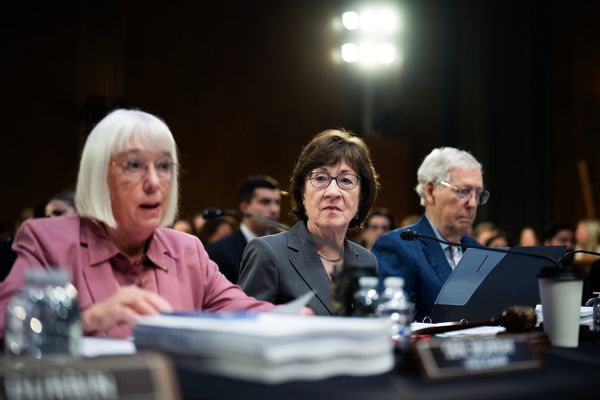
Indigenous communities in northern Kenya are being pushed off their land to make way for wildlife reserves, human rights groups say. They accuse conservation groups of using tourism and carbon offset schemes to justify evictions and violence.
The savannahs of Isiolo County are home to elephants, giraffes, zebras and lions, attracting thousands of tourists each year.
The region is also used for carbon offset projects, where companies like Netflix and Meta pay to fund conservation efforts that help cancel out their own emissions.
The wildlife reserves are managed by the Northern Rangelands Trust (NRT), a network of around 43 to 45 community conservancies across northern and coastal Kenya. NRT says it supports local institutions that are led by and serve indigenous communities.
But in a report published this week, the International Federation for Human Rights (FIDH) and Lawyers Without Borders (ASF) accuse NRT of violating the rights of the Borana, Samburu and Rendille peoples.
“Local communities are being restricted from accessing their own lands," FIDH's Gaëlle Dusepulchre told RFI.
"The areas are then protected by rangers and police. When communities protest or attempt to access the land, they are often met with repression. Cases of violence committed by both rangers and local police, as well as local government officials, have been documented."
Tanzanian Maasai lawyers to launch appeal in East African land grab court case
'Disposessed' communities
NRT, which was created in 2004, sells carbon credits to Western companies including Meta, Netflix, British Airways and other multinationals.
The Coalition for Human Rights in Development says NRT has received millions of dollars from international donors, including the European Union, USAID, the World Wildlife Fund, the World Bank and the French Development Agency.
The new report adds to earlier claims of abuse and misconduct.
In November 2021, the US-based Oakland Institute accused NRT of links to community violence and extrajudicial killings.
The report said NRT, working with the Kenya Wildlife Services (KWS) and local authorities, “dispossessed pastoralist communities of their ancestral lands, through corruption, cooptation, and sometimes through intimidation and violence, to create wildlife conservancies for conservation dollars”.
The following year, donors commissioned an independent review to look into the allegations. Kanyinke Sena, director of the Indigenous Peoples of Africa Co-ordinating Committee, said he found “strikingly little evidence" to back the claims.
The Oakland Institute rejected the review, calling it a “sham”. It said Sena failed to meet tribal leaders or find the families of those allegedly harmed, Mongabay News reported.
The environmental media outlet also reported that protests against NRT by indigenous groups were often put down by force. On 8 May 2023, police in Kenya reportedly fired live ammunition and tear gas at unarmed villagers who were protesting the opening of a new NRT office and a conservation project launched without their consent.
Lack of funds in Liberia hampers legal enforcement of rural land rights
Legal recourse
Earlier this year, a court sided with indigenous communities and ruled that two of NRT’s largest conservancies had been created illegally.
The case was brought by 165 people from local communities.
The court also ordered NRT rangers to leave both areas. The rangers have been accused of serious human rights abuses.
One of the conservancies involved, Biligo Bulesa, provides about one fifth of the carbon credits in NRT’s offset programme, said Survival International.
Despite the court win, Dusepulchre said indigenous groups still struggle to access justice. “Some of them have lodged complaints. They haven't been processed, nor have they led to investigations. So there is indeed a broader issue around access to justice,” she said.
FIDH is calling on NRT, Kenyan authorities and international donors to respect the rights of local people. “Nature conservation must not happen without the participation of those who live on these lands,” Dusepulchre said.
The Northern Rangelands Trust has not yet responded to RFI’s requests for comment.







